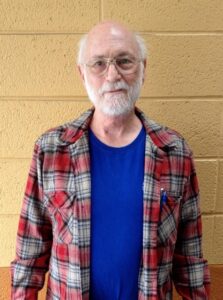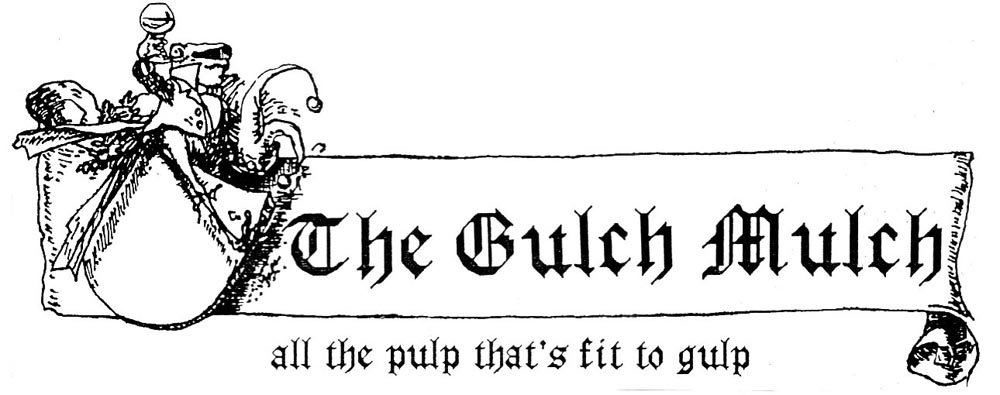Interview with Ed Denson, Local Lawyer

Had you always wanted to be a lawyer or did the idea just come to you one day?
I am a from the South. My mother said I should be a lawyer, or a doctor, or in the military. I ignored her for 55 years, and had a career as a rock band manager, and record label owner. I was doing legal support work for a few years, and realized that there was a shortage of lawyers in the civil rights and marijuana fields, if you’ll pardon the pun, which were closely related areas of law. With my inheritance I was able to go to law school and took to the law like a duck to water. At 59 I become a lawyer.
Was it easy or difficult for you to study for and pass the bar?
I studied at home with what we now call a “distance learning” school. It took me a few months to catch on, but once I caught on the rest of the study was easy and enjoyable. I passed the Baby Bar on the 1st try, and 3 years later, the full bar on the 1st try, Distance learning students statistically do poorly, with a bar pass rate around 17%. But I think it helped that I was 59 years old and had the maturity to do the required study on my own.
How long did the whole process take?
Almost 5 years.
What is one major aspect about the legal system that no lay person realizes?
That legal language differs from standard English, and words do not mean what they seem to in many laws. This makes it very difficult for the untrained to read the laws and understand them
Can you tell us what’s the most important aspect to settling a DUI case?
Good facts. Most DUI cases become quite technical, and having a grip on the technical aspects makes assembling the good facts much easier. You asked about settling a DUI case. You can settle any DUI case by taking the DA’s first offer, and these days the offer usually comes very early in the process. The trick, of course, is to get the best settlement, and that usually takes time.
If someone is stopped for DUI do you recommend submitting to sobriety, breathalyzer, or blood tests?
The ideal client refuses the field sobriety tests, and the preliminary alcohol breath tests. After being arrested they take a blood test. The problem is that people get confused about what to refuse, and end up refusing the post-arrest tests which the law requires them to take. This means they lose their license for a year for the refusal, even if they are not convicted of the DUI. So as a rule of thumb if you are confused take the tests. When they ask if you’d prefer a breath test or a blood test, take the blood test.
What’s the most important aspect to settling a cultivation case?
Good facts. Like DUIs, marijuana cases are often technical. With DUIs its all about the breath machine or the blood testing machines; with marijuana its about challenging the investigation, and keeping on top of the ever changing law.
Do you think weed will be legalized in California next year?
Probably
What could derail that initiative?
Infighting, a study suggesting marijuana does serious harm (eg causes mental issues in youth), a scandal involving dispensary shipments out of state.
What specifically do you think will be a big issue that will require your expertise?
What is a reasonable amount for a grower, or dispensary operator, to earn.
Would you venture a prediction about anything in particular regarding legalization?
It will create more work for lawyers. Legislators just can’t seem to say marijuana is legal just like tomatoes are legal, no restrictions, no limits, no licenses, no problems. If they could do that we defense lawyers would have to fall back on DUIs to make a living,
Is it chummy at the bar? Does a genial and well-liked (by judge and prosecutor) lawyer seem to get better client outcomes?
The bar is quite chummy. Lawyers are a group set apart from normal society, and often very helpful to each other, even on first meetings. I don’t think that being liked makes better outcomes, but I do think that being disliked makes worse ones. There is a middle area of being neither liked nor disliked which doesn’t affect outcomes. If you are disliked, the danger is that the opposing lawyer gets mad at you and does a lot of extra work on the case which ordinarily they would not do. Their dislike gives them motivation and energy. Of course if you dislike the opposing lawyer, then you get the benefit of the motivation and energy. I have not seen judges influenced by their personal opinions of the lawyers to change the outcomes of the cases.
What is your favorite, most fun, and rewarding part of the job?
Finding and researching the winning argument.
What is the most difficult, least favorite?
I have become less fond of staying in motels than I used to be. The novelty has worn off. Of course losing a trial is the absolute worst thing that can happen. Very few DUI or marijuana cases go to trial, but having the jury come back with a one word verdict is really depressing.
Did you realize there would be so much driving?
No, my mentor came from the pre-Prop 215 days, and advised me to get a 4 wheel drive vehicle so I could get to the back country grows I was going to defend. But Prop 215 changed all that. The grows were much closer to the county roads, and I had clients coming to me from all over Northern California because local attorneys did not understand medical marijuana law. I get fewer distant clients now, but just finished 3 cases in Shasta and Tehama counties, and will be going to Del Norte in a few weeks. Most of my work is in Ukiah and Eureka, of course, and those courts are only a 200 mile round trip from my home. I was most fortunate in getting a used Volvo at the beginning of my career. I’ve driven nothing but Volvos ever since – I think I’ve had 4 of them.
How does your music career, managing John Fahey and Country Joe, as well as running Kicking Mule Records, segue into your law career?
Negotiating was important in the management, negotiating is important in the law. You need to have a feel for it and only practice gives that to you. In that sense the music was a preparation for the law. I think too that it gave me a good sense of victory being possible. Country Joe in particular went very far in the music business. You need to have seen success to understand that it is possible.
What was your best moment in court?
Winning a case is always a best moment but perhaps the best of the best came in the 20th century when I was defending some protestors against trespass charges during the timber wars in Humboldt County. During cross examination I was able to get the prosecution’s key witness to admit that after the protestors were arrested, he had moved the boundary markers so it it appeared they were arrested on timber company land instead of the public right of way. The judge dismissed the case. I felt like Perry Mason. The prosecutor was so upset that she never spoke to me again during her time working for the DA.
Another best moment came during a different protestor defense when I demanded a jury trial for trespass and the Deputy District Attorney told the judge “We don’t have time for the defendants to have their constitutional rights.” As you might imagine the judge was not pleased with that assertion, and the case was dropped.

